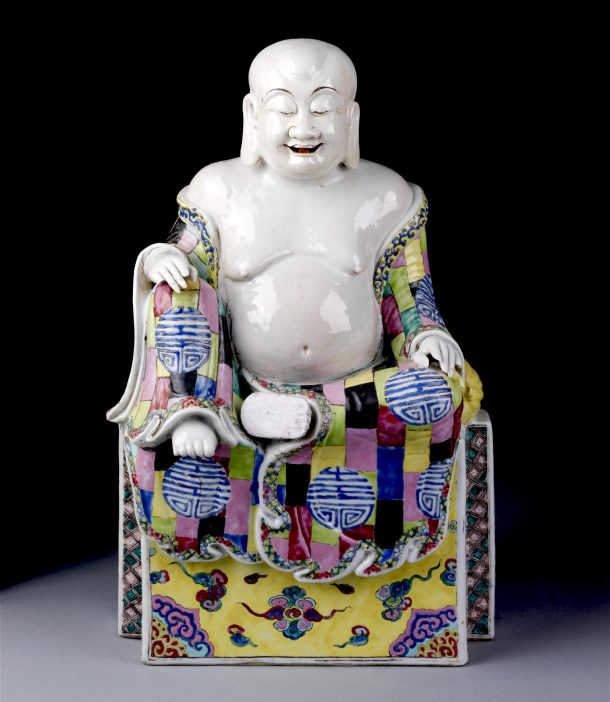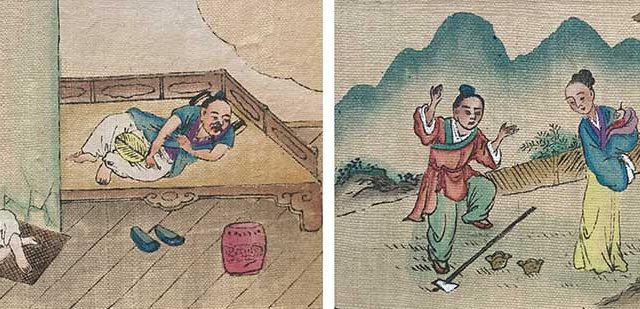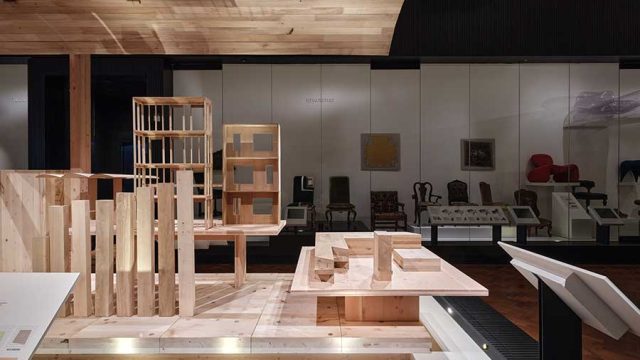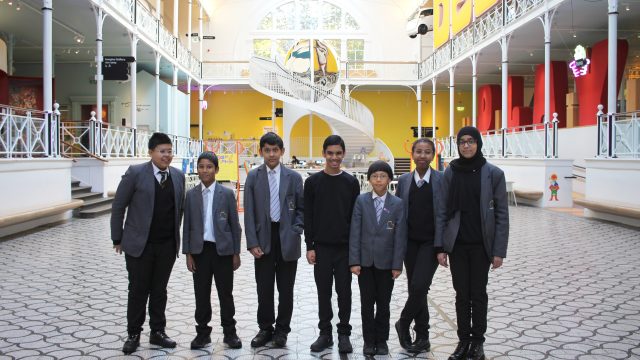Museums have never been more popular around the world or faced such sustained criticism. The Louvre enjoys record-breaking visitor numbers; Abu Dhabi’s Saadiyat Island builds a new museum campus for the Middle East; and blockbusters on Leonardo to Van Gogh to David Bowie criss-cross the globe. But museums also face challenges: critics question historic claims to neutrality, call for the repatriation of colonial-era artefacts, and lead protests over the origins of financial support from corporate and private individuals. In an era of growing nationalism and populism, the complicated multi-cultural stories that museums tell can often seem out of kilter with political demands. Why are our museums, from right across the globe, both so popular and under such criticism?

1736 – 95. Mus. no.
C.1370-1910. Image © The Victoria and Albert Museum
In conversation with prominent figures from across the global museum landscape and creative industries, I pursue answers to these important issues and debates in a new three-part series for BBC Radio 4 Curating the Future – the first episode is broadcast today at 11am. Together, we explore how museums around the world are responding to twenty-first century challenges, whilst making our collections increasingly accessible and relevant.
The series begins by looking back at the origins of some of the world’s oldest museums and galleries – so-called encyclopaedic or ‘world museums’ that sought to encompass the full range of human creative endeavour, but also those founded to tell the story of a nation, to display a royal or colonial collection or to promote technical and educational improvement.
At Oxford’s Pitt Rivers Museum – a great museum of science and the natural world, and an institution emblematic of Victorian colonial confidence and civic endeavour – I talk to Professor Dan Hicks and Marenka Thomson Odlum. In the mid-19th century, the collection engendered powerful debate about the nature of evolution. How can these foundational ideals and roots in colonial violence be reconciled with the ethics of post-colonial society?
Today, the Pitt Rivers’ mass of Victorian cabinets crammed with artefacts are spaces of wonder, but also places of loot and loss. It is a tension that has put the museum at the heart of debates around decolonising museums. The episode explores the issue of restitution, particularly in the aftermath of the 2018 French Government-published Savoy Sarr Report. Today, these extraordinary, global collections face growing demands and Fatema Ahmed of Apollo Magazine talks about the complicated nature of restitution for museums. For the Pitt Rivers, the response has focused on community engagement and new forms of cooperation with source communities, but also reflection on the physical displays themselves.
The debate is far-reaching, but one that’s been focused particularly on artefacts such as the Benin Bronzes; objects such as the Maqdala Treasures here in the V&A; or the Parthenon Friezes – or Elgin Marbles – in the British Museum.
As one of the world’s great encyclopaedic collections, the British Museum has been at the heart of the debate. However, like many other world museums, they are taking steps to highlight provenance – the often controversial history – of where the objects came from. As British Museum Director, Hartwig Fischer explains in the episode – the museum is a key player in the ‘Benin Dialogue Group’, which brings together curators from three Continents to study the Benin Bronzes and support on the development of a new museum in Benin City.
The British Museum – alongside other members of the Benin Dialogue Group – is committed to lending to this important new cultural facility. But restitution is not so straightforward. Ugochukwu-Smooth Nzewi, Curator at New York’s Museum of Modern Art, reminds us that objects connected to community and culture are transnational – we explore where, and to whom, should historic objects go to today, and why?
The episode also considers the development of nationally-focused museums. With their very particular stories of nationhood, they are also having to rethink just how representative they are. I talk to Taco Dibbits, General Director of Amsterdam’s Rijksmuseum’s about the notion of shared, and shifting, national identities in the era of increasingly divisive politics. We consider the ways in which national museums address stories beyond individual borders. The material cultures they assemble speak to the inevitably entangled, multicultural and interconnected nature of our national identity and contemporary community.
The ugly history of Empire is also part of this story. Colonialism reshaped the cultures of both the colonised and the coloniser, and it is up to museums to address that complex and nuanced story. That responsibility – of exploring the past through the power of objects; of exploring who we think we are – traditionally sat with the museum’s curators – but now, increasingly, is achieved in collaboration with voices and perspectives from outside the museum. This makes for a richer understanding of the past, which itself necessitates new ways of working.
Episode two of Curating the Future explores the heated debate about who visits museums, what’s on display and who pays, and the final episode asks questions about the role of digital technology in museums. Can the older institutions compete with the world’s newest museums and galleries? Just how can these places that I love, these wondrous temples to the past, create a different future for themselves?


